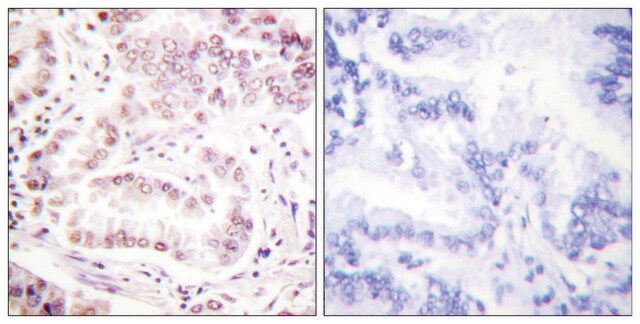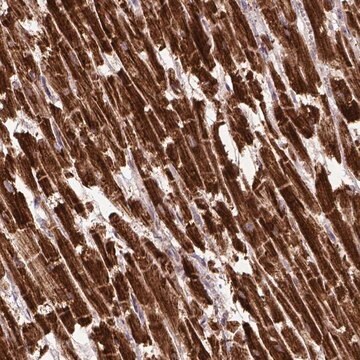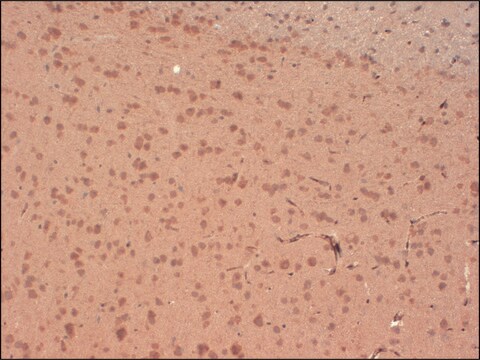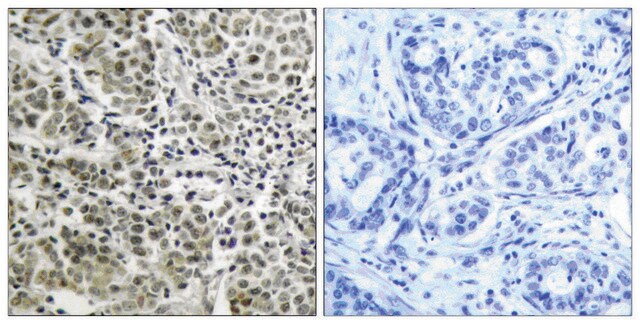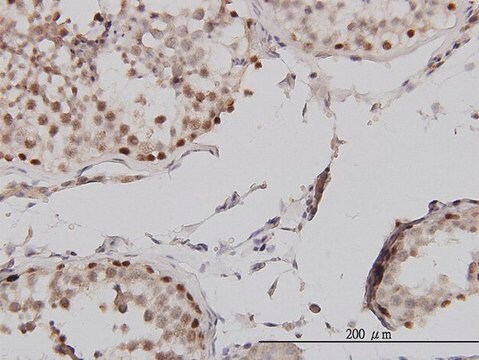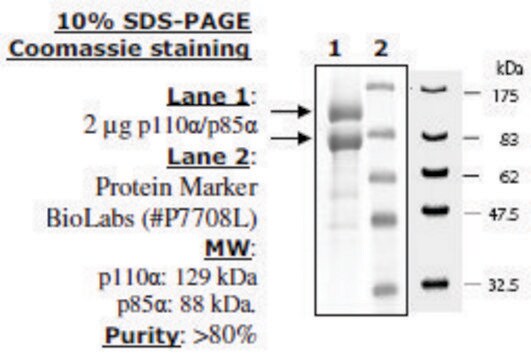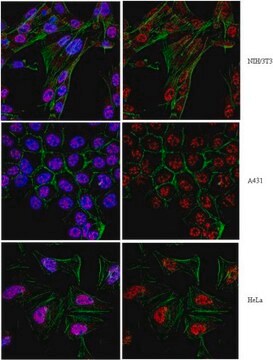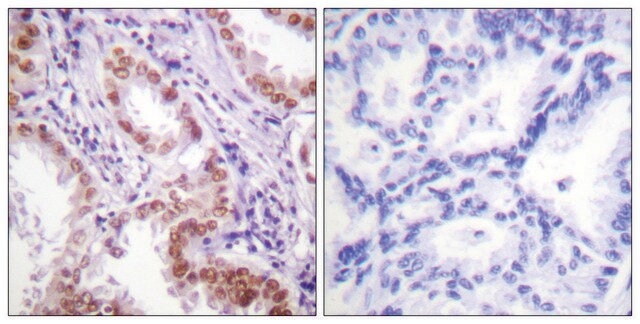SAB5300249
Monoclonal Anti-MLH1 antibody produced in mouse
clone 4C9C7, ascites fluid
Synonyme(s) :
COCA2, FCC2, HNPCC
About This Item
Produits recommandés
Source biologique
mouse
Conjugué
unconjugated
Forme d'anticorps
ascites fluid
Type de produit anticorps
primary antibodies
Clone
4C9C7, monoclonal
Poids mol.
85 kDa
Espèces réactives
human, monkey
Technique(s)
direct ELISA: 1:10,000
immunohistochemistry: 1:200-1:1,000
indirect immunofluorescence: 1:200-1:1,000
western blot: 1:500-1:2,000
Isotype
IgG1
Numéro d'accès UniProt
Conditions d'expédition
wet ice
Température de stockage
−20°C
Informations sur le gène
human ... MLH1(4292)
Immunogène
Mouse monoclonal antibody raised against MLH1
Forme physique
Clause de non-responsabilité
Vous ne trouvez pas le bon produit ?
Essayez notre Outil de sélection de produits.
Code de la classe de stockage
10 - Combustible liquids
Classe de danger pour l'eau (WGK)
WGK 3
Point d'éclair (°F)
Not applicable
Point d'éclair (°C)
Not applicable
Certificats d'analyse (COA)
Recherchez un Certificats d'analyse (COA) en saisissant le numéro de lot du produit. Les numéros de lot figurent sur l'étiquette du produit après les mots "Lot" ou "Batch".
Déjà en possession de ce produit ?
Retrouvez la documentation relative aux produits que vous avez récemment achetés dans la Bibliothèque de documents.
Notre équipe de scientifiques dispose d'une expérience dans tous les secteurs de la recherche, notamment en sciences de la vie, science des matériaux, synthèse chimique, chromatographie, analyse et dans de nombreux autres domaines..
Contacter notre Service technique